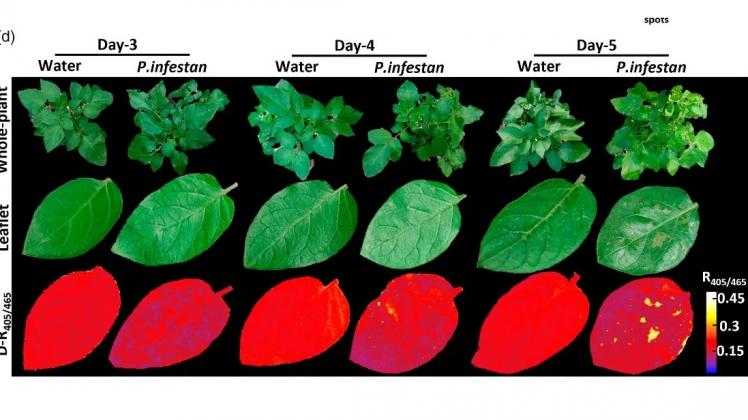Israel. New protein-based biosensor enables early detection of late blight in potato plants
Researchers at the Hebrew University of Jerusalem have developed a new molecular sensor system that enables early detection of late blight in potatoes, according to a news report by the Jewish News Syndicate.

In a cover story published in The Plant Journal, researchers used genetic engineering methods to produce new potato varieties that produce distinctive proteins. These proteins act as a biological sensor that can be sent to the chloroplasts in the plant’s cells, where photosynthesis occurs.
By using sensitive cameras that can pick up signals sent from the sensor, they were able to obtain spatial information about the whole plant. The images helped monitor the plant’s physiological state throughout the development of late blight in the potato.
The research findings revealed that the use of protein as a biological sensor was able to detect the diseased areas of the leaves during the ‘invisible stages’.
“In its early stages, it is difficult to identify the disease since no external signs can be seen on the leaf,” explained Mr Hipsch. “In our previous study, we saw that using molecular sensors within the biological systems of potatoes is particularly effective in identifying stress conditions even before plant damage has been caused.”
The development of advanced biotechnological tools for early plant-disease detection can lead to a future research breakthrough in understanding the pathogenicity process and minimize agricultural damage, according to the research team. This new method can be used for in-depth study of the mechanisms of resistance to late blight, as well as for scanning and detecting potential substances that will improve the resistance of plants.
Source: Jewish News Syndicate
Fuente: https://www.potatonewstoday.com/2023/03/19/new-protein-based-biosensor-enables-early-detection-of-late-blight-in-potato-plants/




